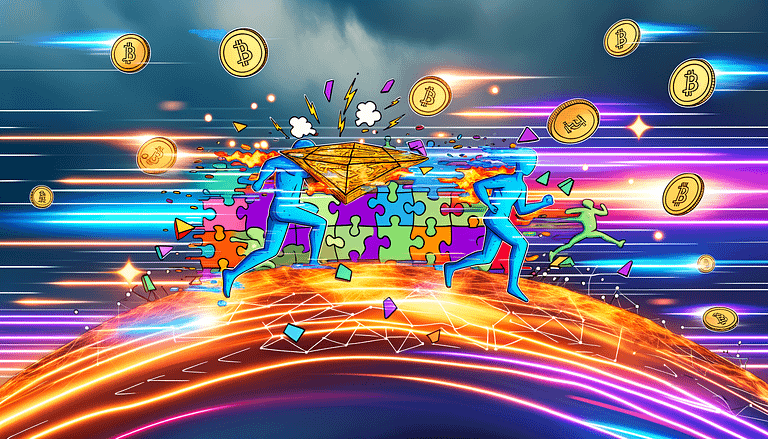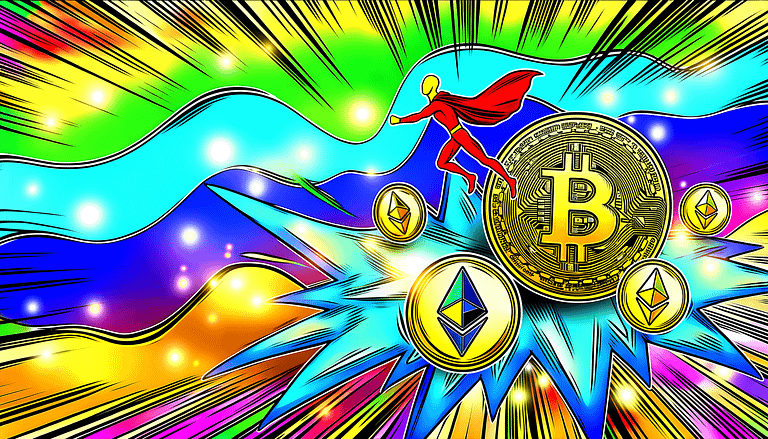PayPal Expands PYUSD Stablecoin to Solana Blockchain
In A Nutshell
PayPal has announced the expansion of its stablecoin, PYUSD, to the Solana blockchain, marking a significant move beyond its initial launch on Ethereum. This strategic decision aims to leverage Solana’s high transaction speed and low cost, enhancing the utility of PYUSD for everyday transactions. The integration provides a seamless, chain-agnostic experience for PayPal and Venmo users, potentially reshaping the landscape of digital payments.
Expanding the Horizon: PYUSD on Solana
On May 28, PayPal revealed its plan to extend the availability of its PayPal USD (PYUSD) stablecoin to the Solana network. This step is seen as a move to diversify the stablecoin’s utility, making it more accessible and efficient for a wider range of financial activities. Solana’s capability to process up to 65,000 transactions per second at a minimal cost presents an attractive proposition for executing small and daily transactions with PYUSD.
Strategic Move for Enhanced Payment Solutions
PayPal’s senior vice president of blockchain, Jose Fernandez da Ponte, emphasized that bringing PYUSD to the Solana blockchain aligns with PayPal’s mission to foster a digital currency that supports commerce and payment services effectively. By choosing Solana, PayPal aims to mitigate the limitations faced by Ethereum’s lower transaction throughput and higher fees, ensuring a smoother and more cost-efficient transaction experience for PYUSD users.
Unified Experience Across Chains
A notable feature of PYUSD’s expansion is the provision of a chain-agnostic experience for users. Regardless of whether PYUSD is held on Ethereum or Solana, PayPal and Venmo wallet users will see a unified balance, streamlining the user experience across different blockchain networks. This approach reflects a growing trend towards interoperability and ease of use in the digital asset space.
Impact on Solana’s Ecosystem
Solana has already established itself as a leading network for stablecoin transfers, with a reported volume of $1.5 trillion over the past year, surpassing Ethereum’s volume. The addition of PYUSD to Solana is expected to bolster this position, despite the network’s challenges with occasional outages. Solana’s upcoming Firedancer upgrade aims to further enhance the network’s reliability and scalability, potentially attracting more users and applications to the ecosystem.
Understanding Stablecoins
Stablecoins like PYUSD are cryptocurrencies designed to maintain a steady value by being pegged to stable assets such as the U.S. dollar. PayPal’s venture into stablecoins, in collaboration with Paxos Trust Company, represents a convergence of traditional finance and blockchain technology, aimed at offering users a stable and reliable medium for digital transactions.
Market Position and Future Prospects
Despite the dominance of Tether (USDT) in the stablecoin market, PYUSD’s expansion to Solana could enhance its market position and utility. As the digital currency landscape continues to evolve, the strategic deployment of stablecoins on high-performance blockchains like Solana may play a crucial role in shaping the future of payments and financial services.
Our Take
PayPal’s decision to expand PYUSD onto the Solana blockchain signifies a forward-thinking approach to enhancing digital payments. By leveraging Solana’s high-speed and low-cost transaction capabilities, PayPal is not only addressing the immediate needs of digital commerce but also setting the stage for the broader adoption of stablecoins in everyday transactions. This move could serve as a catalyst for other financial services and digital currency platforms to explore similar innovations, ultimately leading to a more accessible, efficient, and interoperable digital financial ecosystem.







